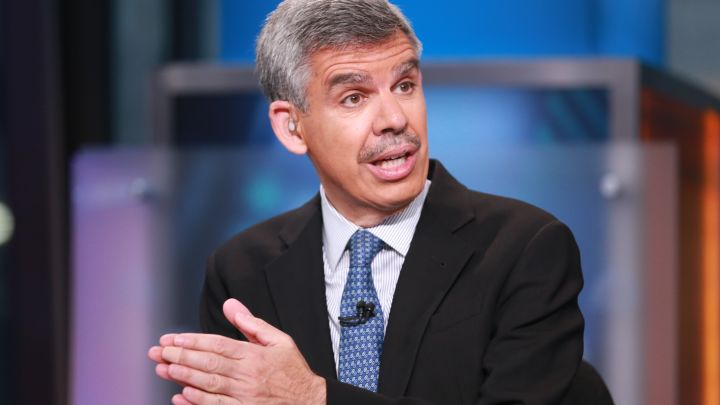
A recent global stock market sell-off won’t be enough to persuade the U.S. central bank to stop raising interest rates, noted economist Mohamed El-Erian told CNBC on Friday.
It comes as financial markets have been hit hard by a range of worries in recent weeks, including the U.S.-China trade war, a rout in emerging market currencies, rising borrowing costs and bond yields and economic concerns in Italy.
“I don’t think the party is over. I think what we are seeing is a transition in regimes,” El-Erian, chief economic advisor at Allianz, told CNBC’s Hadley Gamble in Paris on Friday.
“One from where markets were comforted by ample, predictable liquidity to now having to recognize that divergent fundamentals are going to be the driver of asset prices.”
Not ‘a single soothing word’
The Federal Reserve has already hiked rates three times this year, and investors have priced in a fourth hike in December.
Earlier this month, Fed Chair Jerome Powell said rates are a long way from so-called neutral, a level neither accommodative nor restrictive to the economy.
Since beginning his four-year term at the Fed in February, Powell’s tenure has been marred by disapproving comments from President Donald Trump.
At the start of the month, Trump called the Fed’s plan to continue hiking interest rates “crazy” after the S&P and the Dow marked their worst losses in eight months. Global markets have since whipsawed in recent weeks, amid lingering worries the Fed could soon pick up the pace of its planned interest rate hikes.
Nonetheless, El-Erian said it was “not surprising” to see a recent spike in market volatility. That’s because the Fed has been “very insistent” with its plan to raise interest rates this year and next — without saying “a single soothing word” during the recent bout of selling.
Liquidity risk
When asked which market indicators were keeping him worried, El-Erian replied: “I think that this divergence theme is a really important one.”
“We see interest rate differentials between Germany and the U.S. stretched to high levels (and) we are going to see more pressure on the FX markets. Of course, the best way of dealing with it is for Europe to get its act together on policies and pick up.”
On Thursday, the European Central Bank (ECB) kept its policy unchanged, staying on course to hike interest rates sometime after next summer. The ECB also confirmed its plan to end monetary easing by the end of 2018 remained on track.
“The second issue that I think that is important is underestimated liquidity risk … Liquidity risk is back and investors need to pay attention to that.”
























